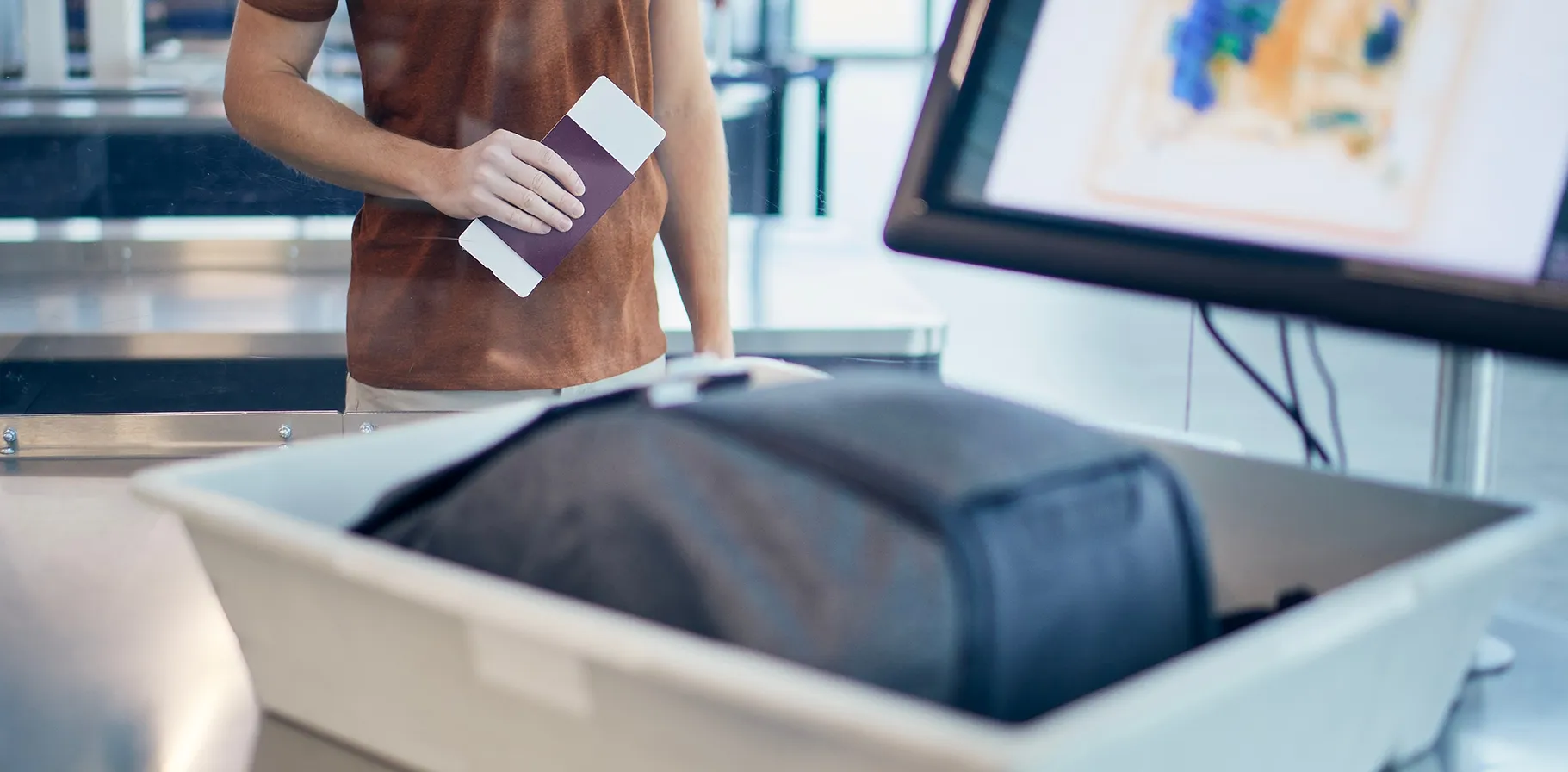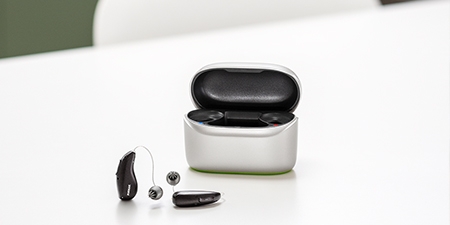Going Through Airport Security with a Hearing Aid

Going Through Airport Security with a Hearing Aid
10 min
Published January 16, 2025
Hearing Aid Airport Security Tips
If you’ve never traveled with hearing aids before, you might be wondering what the protocol is when going through airport security. Some patients worry they will get hassled by TSA personnel about their hearing aids while walking through the metal detector or have issues with the conveyor belts. We assure you that all airport personnel are familiar with hearing aids and other assistive listening devices, and you’ll breeze through security like you did before you wore them. In fact, it can be more helpful to wear your hearing aids while you’re going through security so you can hear the TSA personnel clearly if they ask you questions.
Below, the hearing care providers at Main Line Audiology have included some helpful information about wearing hearing aids while going through airport security and tips to ensure the process goes smoothly the next time you travel. We’re committed to ensuring our patients are comfortable and educated when wearing their hearing aids, regardless of where life takes them next. Contact us today to learn more about traveling with your hearing aids.
Can You Wear a Hearing Aid Through Airport Security?
You don’t need to remove your hearing aids or any exterior components of a cochlear implant while going through security checkpoints at the airport. You should wear your device while walking through the metal detector, but assistive listening devices must undergo an X-ray screening. Rechargeable hearing aid battery packs can stay in your carry-on luggage with no issue. You might not need to take your hearing aids off before walking through the metal detector, but you might want to let the TSA personnel know in case you’re flagged for additional screening. Never place your hearing aids directly in the plastic bins or on the conveyor belt. Static electricity can damage them or be easily lost inside the machine.
Helpful Tips for Using Hearing Aids While Flying
We’ve included some important information you need to know about traveling with hearing aids:
- Keep your hearing aids on while walking through the airport and on the airplane. If you don’t take them off, you’ll be less likely to forget them. While on the airplane, you won’t struggle as much to hear on-board announcements clearly if you keep your hearing aids in.
- If you have any hearing aid accessories, such as extra batteries or cleaning supplies, you should store them in your carry-on bag. Air travel is notorious for unexpected layovers and delays, so having everything close by will be convenient if any problems arise.
- If you’re asked by TSA personnel to put your hearing aids through the X-ray machine rather than wear them through the metal detector, you can rest assured the X-rays won’t harm your devices.
- Even with the best hearing aids, hearing clearly on an airplane or in a busy airport might be challenging. It can help to pay attention to visual cues to fill in parts of speech you may miss.Don’t be afraid to ask others to rephrase what you couldn’t hear clearly.
Remember to Pack the Essentials
When packing your bags, it can help to make a list of all the items you need to bring to ensure your hearing aids stay in working order throughout your trip. Some essential items to consider bringing with you include:
- Extra batteries if your hearing aids use disposable batteries
- A cleaning kit to safeguard your hearing aids against wear and tear they may experience from traveling (try to stick to your daily cleaning routine as much as possible while traveling)
- If you’re visiting a location that’s humid or near water, bringing a dryer or dehumidifier with you can help keep your devices fully dry
- Charging station and charging cable if your hearing aids run on rechargeable batteries
- Extra domes and wax guards to ensure you can fix problems as they arise
- Bluetooth accessories if your hearing aids are connected to smart devices
- Your hearing care provider’s contact information in case you need assistance over the phone while traveling
Do Metal Detectors Pick Up Hearing Aids?
Hearing aids and other assistive listening devices don’t set off metal detectors and can be worn through airport security. TSA won’t give you problems, but you should let them know you’re wearing them before you walk through the metal detector.
Suggestions Directly From TSA
In addition to the traveling tips we included above, TSA has a few suggestions to ensure better communication at the airport:
- If you need to communicate with any personnel, inform them of your disability and how you can communicate. TSA security officers are trained to assist people with hearing disabilities.
- If you need clarification about the screening process, you can motion to the TSA security officer that you can’t hear and ask them to write down the information.
- If you can read lips or don’t have substantial hearing loss, ask your TSA security officer to look directly at you and repeat the information slowly if you need clarification on what’s being said.
- You don’t need to remove hearing aids or the exterior component of a cochlear implant at security checkpoints.
- It’s recommended to wear your hearing aids while going through the metal detector.
- Assistive listening devices must undergo an X-ray screening.
- If you use a hearing dog, you and your dog must always stay together while going through security. See the “Service Animal” section on the TSA website for more tips on taking service animals through the screening process.
Contact Main Line Audiology Today to Learn More
Going through security at the airport is already overwhelming for some people. When you add hearing aids to the mix, you might not know how to navigate the process of air travel. Rest assured, the hearing care providers at AudioNova are here to help. Contact us for more information about traveling with hearing aids so your next trip can go smoothly. You can also schedule an appointment online to dive into your hearing healthcare during a one-on-one consultation at one of our conveniently located hearing care centers.




